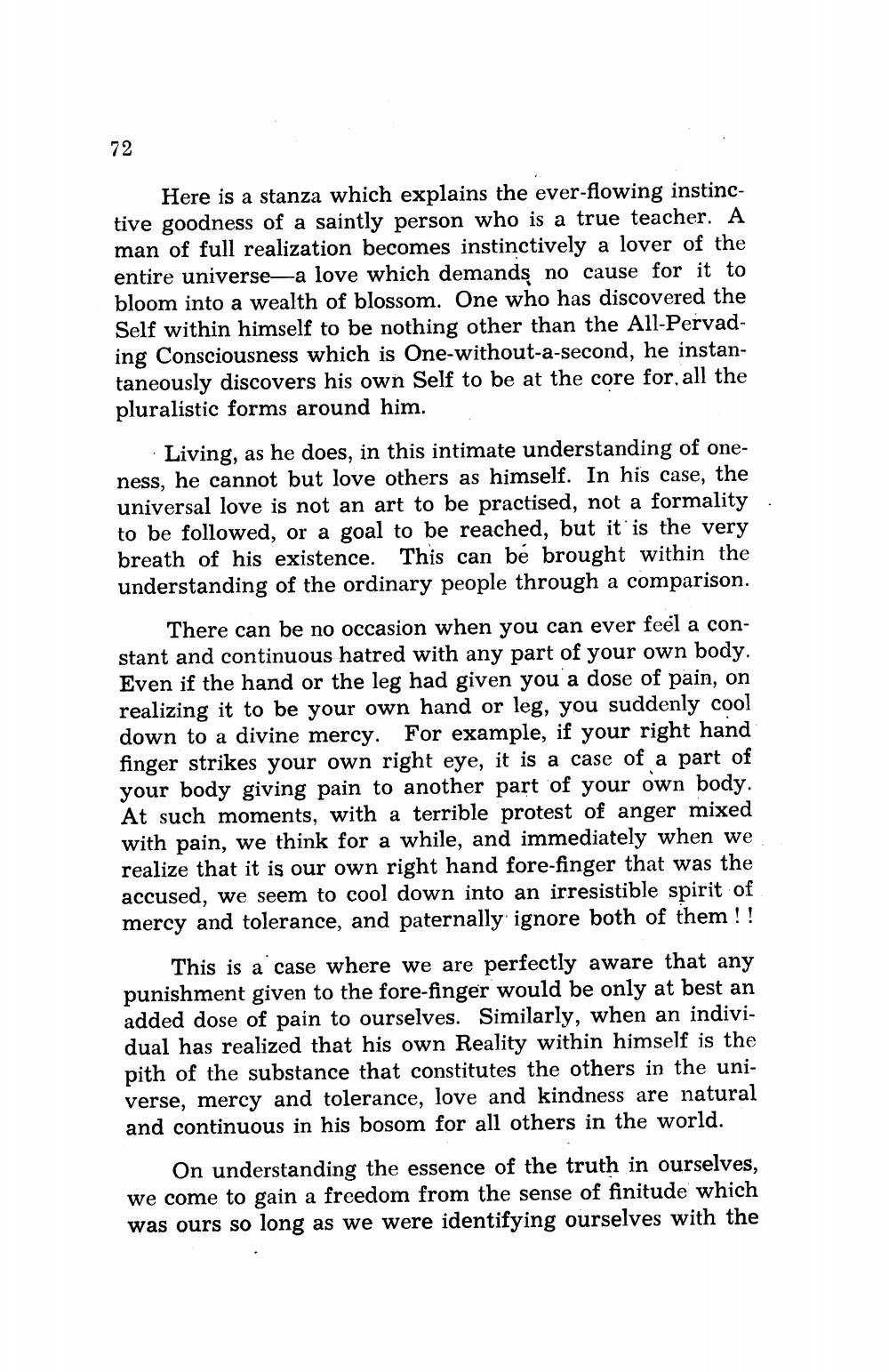________________
72
Here is a stanza which explains the ever-flowing instinctive goodness of a saintly person who is a true teacher. A man of full realization becomes instinctively a lover of the entire universe—a love which demands no cause for it to bloom into a wealth of blossom. One who has discovered the Self within himself to be nothing other than the All-Pervading Consciousness which is One-without-a-second, he instantaneously discovers his own Self to be at the core for all the pluralistic forms around him.
· Living, as he does, in this intimate understanding of oneness, he cannot but love others as himself. In his case, the universal love is not an art to be practised, not a formality to be followed, or a goal to be reached, but it is the very breath of his existence. This can be brought within the understanding of the ordinary people through a comparison.
There can be no occasion when you can ever feel a constant and continuous hatred with any part of your own body. Even if the hand or the leg had given you a dose of pain, on realizing it to be your own hand or leg, you suddenly cool down to a divine mercy. For example, if your right hand finger strikes your own right eye, it is a case of a part of your body giving pain to another part of your own body. At such moments, with a terrible protest of anger mixed with pain, we think for a while, and immediately when we realize that it is our own right hand fore-finger that was the accused, we seem to cool down into an irresistible spirit of mercy and tolerance, and paternally ignore both of them !!
This is a case where we are perfectly aware that any punishment given to the fore-finger would be only at best an added dose of pain to ourselves. Similarly, when an individual has realized that his own Reality within himself is the pith of the substance that constitutes the others in the universe, mercy and tolerance, love and kindness are natural and continuous in his bosom for all others in the world.
On understanding the essence of the truth in ourselves, we come to gain a freedom from the sense of finitude which was ours so long as we were identifying ourselves with the




